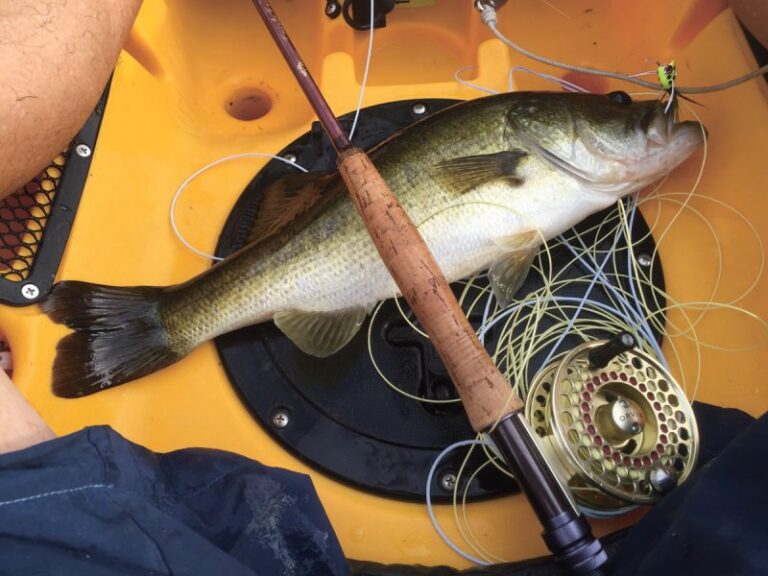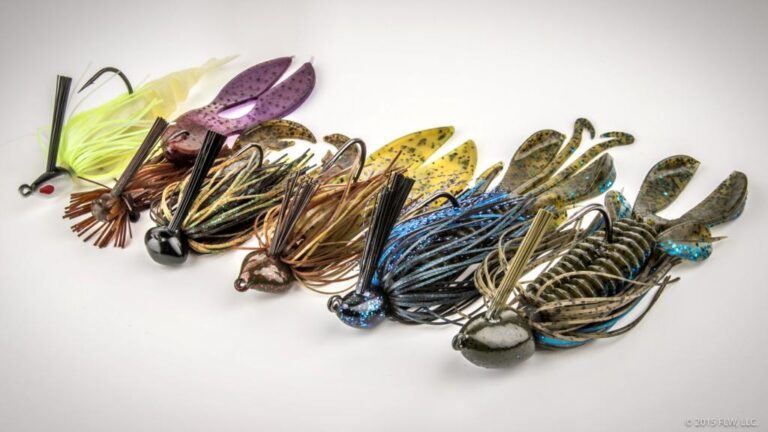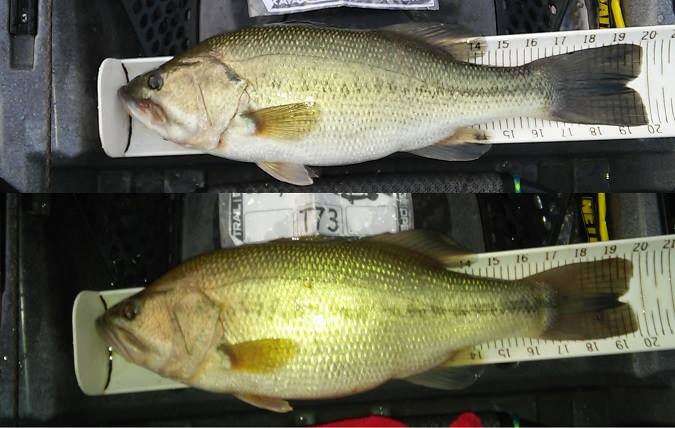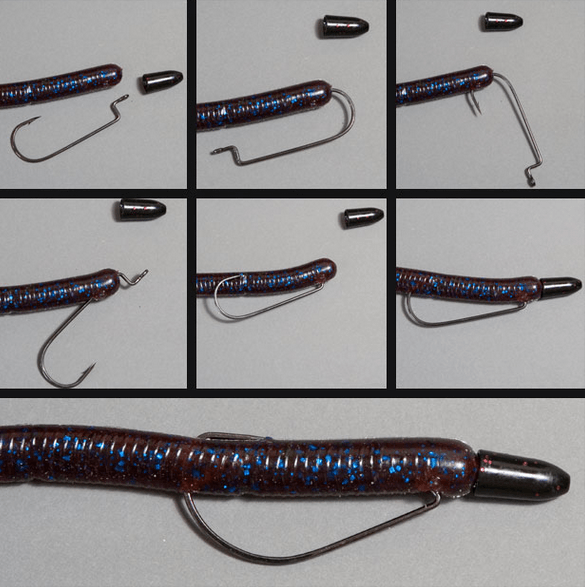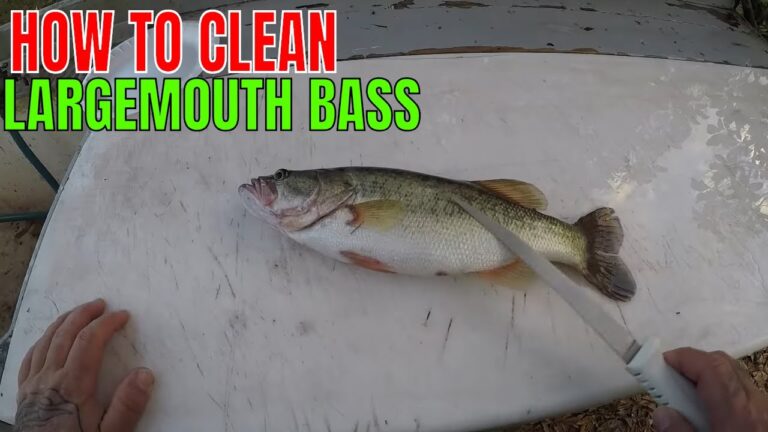What Size Hook for Smallmouth Bass
For smallmouth bass, a hook size between 1/0 and 4/0 is generally recommended. Choose sharped-edged, medium-wire hooks for the best results.
Selecting the right hook size is essential for successfully catching smallmouth bass, a popular game fish known for its fighting spirit. Anglers pursue these vigorous fish with various techniques, which often dictate the choice of hook size and style. A versatile range, 1/0 to 4/0 hooks suit most bait types from soft plastics to live bait, ensuring a solid hookset while minimizing harm to the fish.
Opt for high-quality, rust-resistant hooks to improve your catch rate and contribute to sustainable fishing practices. Remember, hook selection can significantly impact your fishing success, making it as crucial as the bait and technique you choose for your smallmouth bass adventure.
Targeting Smallmouth Bass
Smallmouth bass thrive in various habitats, making them versatile targets. Clear waters with gravelly or rocky bottoms are prime spots for these fish. They love structures like logs, boulders, and weed beds. Rivers and streams provide an excellent home for them, as do lakes and reservoirs. The key is looking for places with a current or those that offer shelter and food.
As seasons change, so do the smallmouth bass habits. During spring, they move to shallow waters to spawn, making them easier to catch. Summer pushes them into deeper areas as they seek cooler temperatures. Come fall, they’re often found again in shallow spots, chasing baitfish. Winter sees them in their deepest retreats, becoming less active but still catchable with patience.
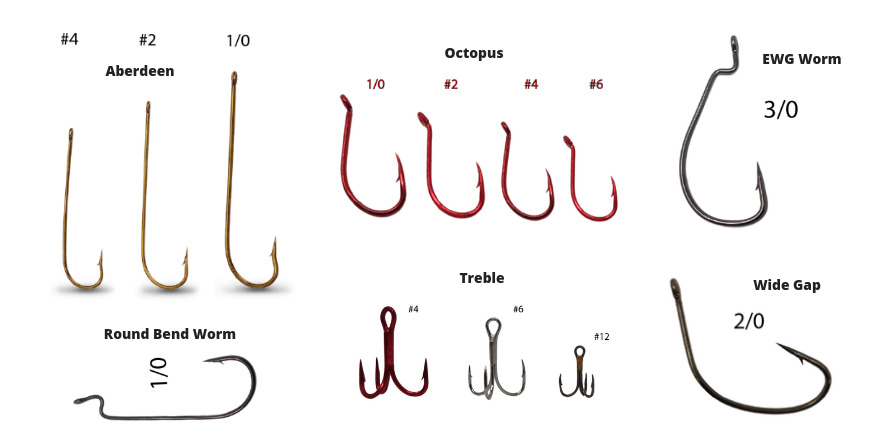
Credit: tailoredtackle.com
Understanding Hook Sizes
Understanding hook sizes matters a lot for smallmouth bass fishing. The right hook size ensures better catch rates and less harm to the fish. Smallmouth bass often require hooks between size 1 to 4. A smaller hook could fail to pierce firmly. A too large hook can be spotted and avoided by fish.
Hook Size Chart Interpretation: A numeric system is used – the larger the number, the smaller the hook. A #1 hook is larger than a #6 hook. For jig heads, use 1/16 to 1/4 ounces.
Common Hook Types For Bass Fishing
Choosing the right hook for smallmouth bass fishing is crucial for success. Worm hooks are designed for soft plastics and come in various sizes. A size 2/0 to 4/0 worm hook is often recommended. For soft plastic baits, these hooks ensure proper penetration and a better hook set, leading to more effective smallmouth bass fishing.
Treble hooks are ideal for hard baits like crankbaits and topwater lures. Generally, sizes 4 to 6 treble hooks are used in smallmouth bass fishing. These hooks have three points, making them great for lures that imitate small fish or other prey. The multiple points increase your chances of catching a bass, even on a quick strike.
Optimal Hook Size For Smallmouth Bass
Smaller hooks are best for finesse presentations. Use them with lightweight lures. They are less visible to fish. This means bass are more likely to strike. Light line techniques require these hooks. Examples include drop shotting and small jig heads.
Up size hooks match larger baits. They are perfect for aggressive bass. Sturdy hooks handle stronger fights. They provide better hooksets. Use them with crankbaits, spinnerbaits, and topwater lures. Match the hook to your lure size.
Hook Presentation And Bait Selection
Choosing the right hook for smallmouth bass hinges on whether you use natural bait or artificial lures. For those opting for natural bait, live offerings such as minnows, leeches, or nightcrawlers work effectively. The right hook size ensures the bait looks tempting.
Fans of artificial lures should note the importance of “matching the hatch.” This means selecting a lure that mimics local prey. Smallmouth bass often fall for crankbaits, spinnerbaits, and soft plastics that resemble their natural diet. Here, the hook is often integrated into the lure design.
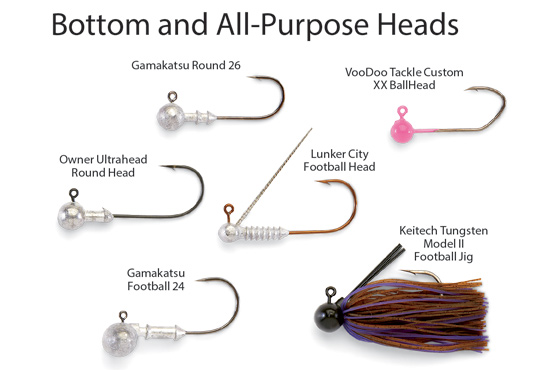
Credit: www.in-fisherman.com
Improving Hookup Rates
Setting the hook properly is vital for catching smallmouth bass. A quick and firm pull on the line ensures the hook penetrates the bass’s mouth. Timing is crucial; too soon and the fish might not fully have the bait, too late and it could spit it out. Practice makes perfect in mastering this skill. Ensure your reflexes are sharp just like your hooks.
Speaking of hooks, the sharpness plays a major role. A dull hook can compromise the catch. It could slip out or fail to pierce through. Regularly check your hooks for bluntness. A simple test is to gently drag the hook across your nail. If it leaves a mark, it’s sharp enough. If not, sharpen it before casting your line. Always carry a hook file. It helps in keeping hooks in perfect condition for your next angler adventure.
Catch And Release: Hook Considerations
Choosing the right hook for smallmouth bass is crucial for successful catch and release fishing. Barbless hooks are key to this practice. They cause less damage to the fish’s mouth, making it easier for the bass to recover post-release. This is critical in conservation efforts aimed at sustaining the smallmouth bass population.
Using barbless hooks also simplifies removal, reducing the time the fish spends out of water. This quick release minimizes stress for the bass. Anglers must handle fish with care, making sure wet hands or tools are used. Such actions cut down mortality rates among caught smallmouth bass. Anglers are encouraged to keep the bass in water as much as possible during the release process.

Credit: theweekendanglersguidetogoodfishing.wordpress.com
Pro Tips From Experienced Anglers
Tapping into local fishing reports is your secret weapon for successful smallmouth bass fishing. Reports reveal what’s biting and the hooks that work best in your waters. Keeping tabs on these reports sharpens your hook choice, boosting your catch rate. Local expertise often trumps generic advice.
Experienced anglers favor hooks ranging from size 1 to 4 for smallmouth bass. They match hook size with bait and bass size in their area. Smaller hooks (size 6–8) may also be used for finesse fishing. This approach fools even the wariest of smallmouths. Adjust your strategy based on fishing conditions and local expertise. This knowledge could mean the difference between a good and great fishing day.
Frequently Asked Questions For What Size Hook For Smallmouth Bass
What Size Hook Should I Use For Smallmouth Bass?
For smallmouth bass, use hooks sized between #1 to #4. Choose according to the bait size and fishing technique for optimal results.
What Is The Best Rig For Smallmouth Bass?
The best rig for smallmouth bass is a light spinning setup paired with finesse lures like jigs, crankbaits, or soft plastics.
What Size Hooks To Use For Bass?
For bass fishing, use hooks between sizes 1/0 and 4/0. Choose larger hooks for bigger bass and larger bait presentations.
What Size Jig For Smallmouth Bass?
A 1/8 to 3/8 ounce jig is ideal for smallmouth bass fishing. Choose based on water depth and current strength.
Conclusion
Selecting the right hook size for smallmouth bass can make a significant difference in your fishing success. Aim for sizes between 1 and 4, ensuring a balance between bait presentation and hook strength. Remember, the clarity of the water and the feeding habits of the bass in your local area can influence your choice.
With the perfect hook, you’re now ready to enjoy the thrill of reeling in those vigorous smallmouths. Happy fishing!
